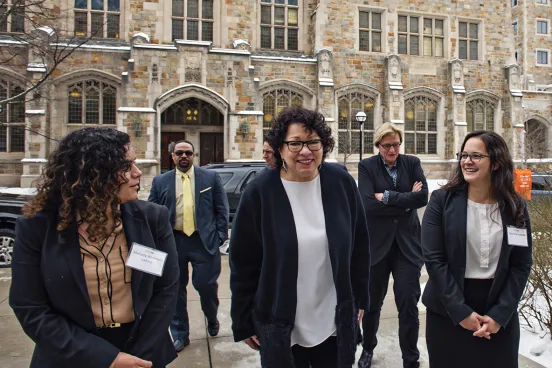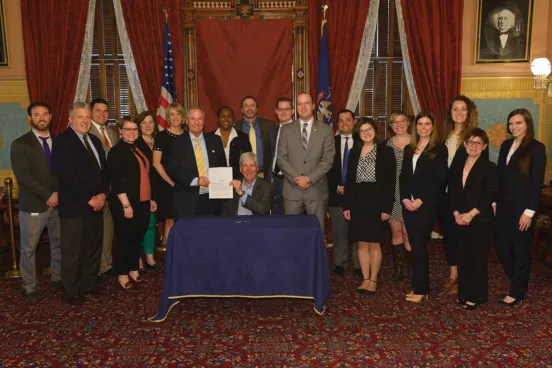While raising the minimum wage around the country has become a well-known political and legal battle, many people are being paid 40 cents an hour—or even less. And it’s perfectly legal.
This so-called “subminimum wage” is paid to people who have physical and mental impairments. An organization called Disability Rights Texas decided to push back, and they did so with the help of students in an innovative Michigan Law class that addressed a variety of workplace laws around the country.
Here’s how the current laws work, according to an investigative report issued by Disability Rights Texas in 2016: Employers in Texas holding special certificates issued by the Department of Labor have been allowed to pay less than the minimum wage to workers with disabilities, in many cases as little as a penny an hour. These certificates are issued in accordance with Section 14(c) of the Fair Labor Standards Act, a law enacted in 1938 during an era when people with disabilities often were excluded from the job market.
“Today, most employers paying subminimum wage under Section 14(c) keep their employees segregated from the community,” the report says. “Workers with disabilities making subminimum wage are employed in sheltered workshops, which intentionally isolate workers with disabilities from the rest of their communities. Their co-workers consist exclusively of other individuals with disabilities, and they perform tedious and unfulfilling work, sometimes for state government contracts.”
3L Jonathan Huberman is one of the students who worked on this class project. “It’s unconscionable that you could work 40 hours a week and take home less than $20,” he says. “We should demand laws that require employers to treat people with disabilities fairly.”
The students in Huberman’s group worked with Disability Rights Texas to develop legislation that would bar the payment of subminimum wages, at least in positions paid for by state contracts. They also produced a white paper explaining why the bill is necessary.
“Their white paper presented good arguments about why Texas should incorporate the model legislation, plus philosophical arguments about why subminimum-wage work shouldn’t be allowed,” says Ted Evans, Equal Justice Works fellow and staff attorney at Disability Rights Texas. “They did some pretty amazing work, and we’re grateful for their collaboration.”
Other students in the class worked on projects focused on farmworker wages, mandatory arbitration agreements, EEOC wellness regulations, expanding access to integrated employment opportunities for individuals with disabilities, wage theft, and more.
“We wanted the students to work on a variety of projects and documents to reflect the ways actual lawyers practice,” says Samuel Bagenstos, the Frank G. Millard Professor of Law and co-teacher of the course. He says he was impressed with the student groups’ white papers, amicus briefs, policy memos, and other materials, which he describes as “very professional final products.”
“Sam and I found that we were both doing a lot of pro bono work with students, and that’s what led us to establish this workshop,” says Kate Andrias, assistant professor of law and co-teacher of the class. “We were very impressed with how much the students developed their writing and persuasive skills. And they did it while also having a substantial impact on real organizations and people.”







